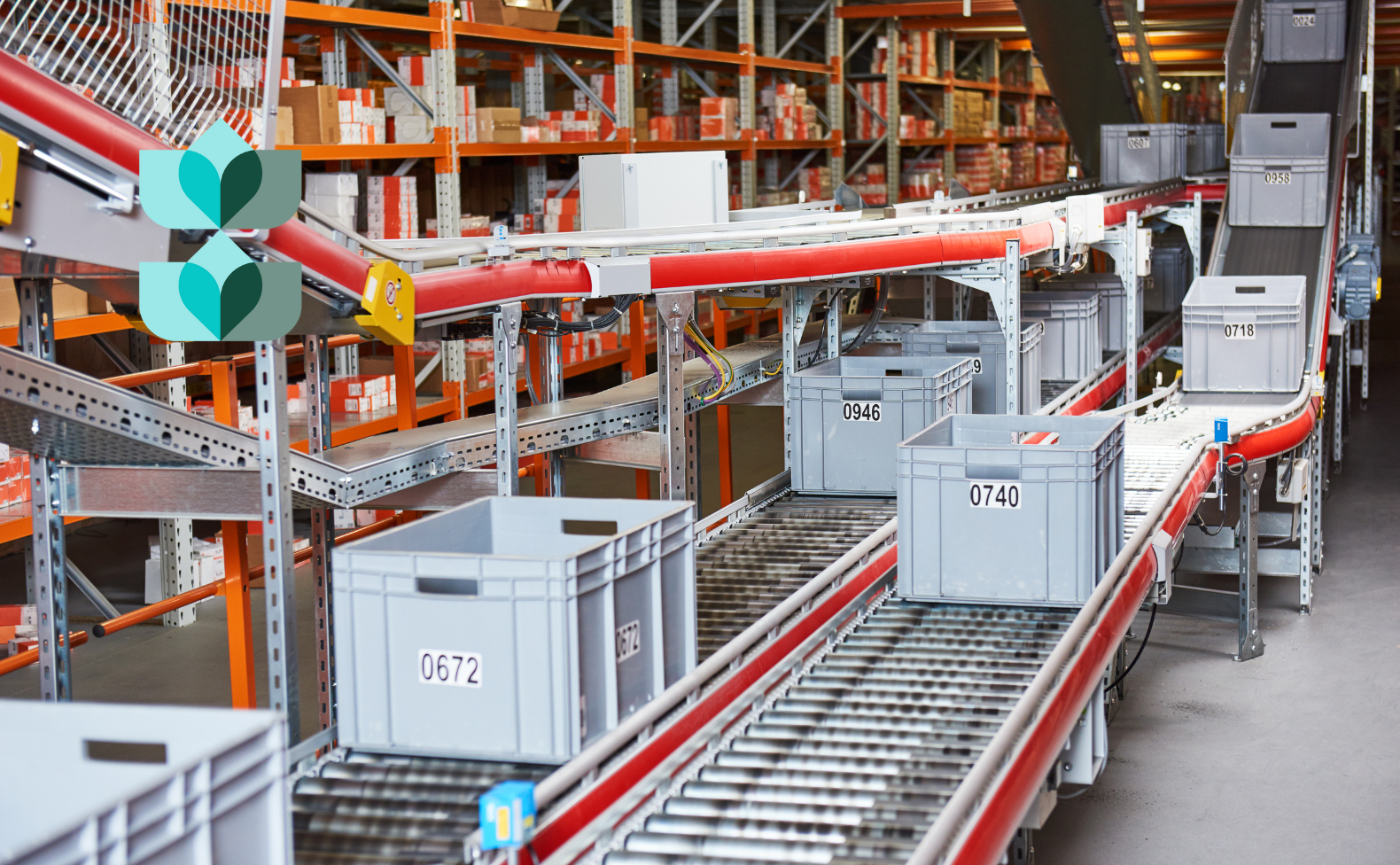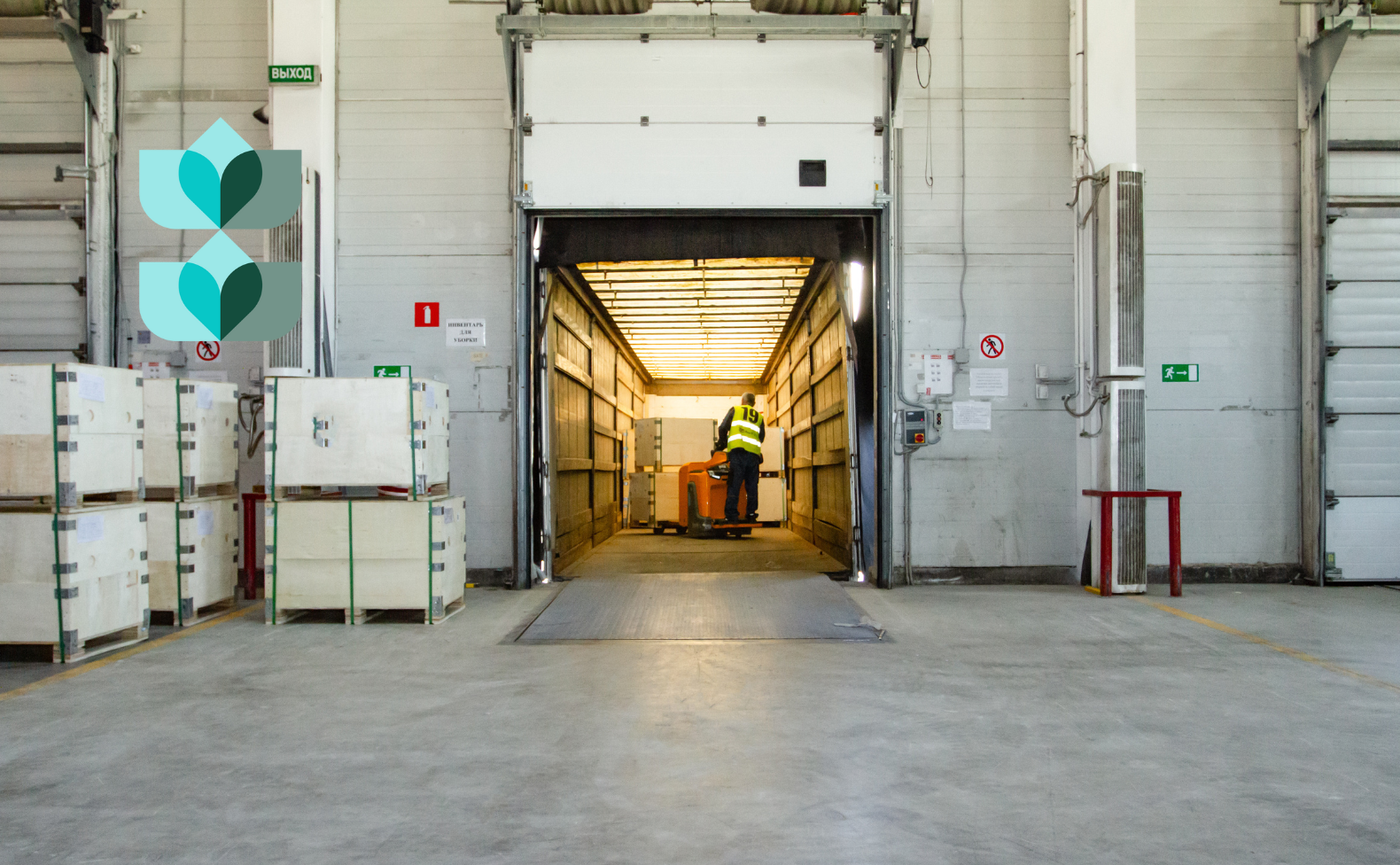In the competitive world of food distribution, there are a few key players who have risen to the top. These companies have established themselves as industry leaders through their extensive reach, diverse product offerings, and commitment to excellence. In this article, we will explore the top 5 largest food distributors in the US and explore how they utilize ERP software to streamline their operations and stay ahead of the competition.

1. Sysco: Setting the Standard for Food Distribution
Sysco, founded in 1969, is a global leader in distributing food products to various industries, including restaurants, healthcare facilities, educational institutions, and hospitality locations. With an annual revenue of $68 billion and 172 distribution centers in the US, Sysco has established itself as the largest food distributor in the country.
Utilizing ERP software, Sysco has been able to optimize its supply chain management, warehouse operations, and order management processes. The company leverages its ERP system to track inventory, manage orders, and ensure efficient delivery of products to its customers. By centralizing data and automating key processes, Sysco is able to improve productivity, reduce costs, and provide exceptional service to its customers.
2. U.S. Foods: Fueling the Foodservice Industry
Founded in 1989, U.S. Foods is a leading foodservice distributor that partners with approximately 300,000 restaurants nationwide. With an annual revenue of $29.5 billion and 100 distribution centers in the US, U.S. Foods has established itself as a major player in the industry.
To manage its vast operations, U.S. Foods relies on ERP software to streamline its supply chain, optimize inventory management, and enhance order fulfillment processes. Through its ERP system, U.S. Foods is able to track and trace products, manage pricing and promotions, and ensure timely delivery to its customers. By leveraging technology, U.S. Foods is able to deliver high-quality products and exceptional service to its customers.

3. Gordon Foodservice: A Legacy of Excellence
Gordon Foodservice, founded in 1897, is the largest family-owned wholesale food distributor in North America. With an annual revenue of $19 billion and 175 distribution centers in the US, Gordon Foodservice has built a reputation for its extensive product offerings and commitment to customer satisfaction.
To effectively manage its operations, Gordon Foodservice utilizes ERP software to streamline its supply chain, optimize inventory management, and enhance order processing. Through its ERP system, Gordon Foodservice is able to track and trace products, manage pricing and promotions, and ensure efficient delivery to its customers. By leveraging technology, Gordon Foodservice is able to meet the evolving needs of its customers and maintain its position as an industry leader.
4. McLane Company: Delivering Excellence to Retailers
McLane Company, founded in 1894, is a leading food distributor that serves retailers, including convenience stores, drug stores, wholesale clubs, and discount grocers. With an annual revenue of $50 billion and 80 distribution centers in the US, McLane Company has established itself as a trusted retailer partner nationwide.
To optimize its distribution operations, McLane Company relies on ERP software to streamline its supply chain, automate order processing, and enhance logistics management. Through its ERP system, McLane Company is able to track inventory, manage orders in real time, and ensure timely delivery to its customers. By leveraging technology, McLane Company is able to provide retailers with the products they need, when they need them.
5. Performance Food Group: Fueling the Food Industry
Performance Food Group (PFG), founded in 1987, is one of the largest wholesale food distributors in the US. With an annual revenue of $30 billion and over 100 distribution centers in the US, PFG serves a wide range of industries, including restaurants and convenience stores.
To efficiently manage its operations, PFG utilizes ERP software to streamline its supply chain, optimize inventory management, and enhance order processing. Through its ERP system, PFG is able to track and trace products, manage pricing and promotions, and ensure seamless delivery to its customers. By leveraging technology, PFG is able to meet the diverse needs of its customers and maintain its position as a leading food distributor.
How ERP Software Transforms Food Distribution
ERP software plays a crucial role in the operations of these top food distributors. By centralizing data, automating processes, and providing real-time insights, ERP systems enable these companies to operate more efficiently, reduce costs, and deliver exceptional customer service.
Here are some key ways in which ERP software transforms food distribution:
Streamlined Supply Chain Management
ERP software allows food distributors to optimize their supply chain management by providing visibility into inventory levels, demand forecasting, and order fulfillment. With real-time data and analytics, distributors can make informed decisions, reduce stockouts, and improve overall supply chain efficiency.
Efficient Warehouse Operations
By integrating with warehouse management systems, ERP software helps food distributors optimize their warehouse operations. From inventory tracking to order picking and fulfillment, ERP systems provide the tools and automation needed to streamline warehouse processes and minimize errors.
Enhanced Order Management
ERP software enables food distributors to manage orders more effectively, from order entry to invoicing and delivery. With features such as pricing management, order tracking, and automated invoicing, distributors can ensure accurate and timely order processing, improving customer satisfaction.
Improved Traceability and Compliance
For food distributors, traceability and compliance are of utmost importance. ERP software with built-in traceability features allows distributors to track products from farm to fork, ensuring food safety and regulatory compliance. In the event of a recall, ERP systems enable swift and accurate identification of affected products.
Data-Driven Decision Making
With ERP software, food distributors can access real-time data and analytics that enable data-driven decision-making. From monitoring sales trends to identifying cost-saving opportunities, ERP systems provide the insights needed to drive business growth and profitability.
Collaborative Supplier Management
ERP software facilitates effective supplier management by streamlining communication, managing contracts, and tracking performance. By maintaining strong relationships with suppliers, food distributors can ensure a reliable supply of high-quality products and negotiate favorable terms.
The top 5 largest food distributors in the US rely on ERP software to streamline their operations, optimize supply chain management, and deliver exceptional customer service. Through the power of technology, these companies have established themselves as industry leaders, driving innovation and growth in the food distribution industry. By leveraging ERP software, they can meet the evolving needs of their customers, maintain high levels of efficiency, and stay ahead of the competition.

What Makes ERP Software So Crucial for Food Distributors?
Enterprise Resource Planning (ERP) software has revolutionized the way businesses operate across industries, and the food distribution sector is no exception. Food distributors, whether small-scale or large-scale enterprises, can significantly benefit from implementing ERP systems. This comprehensive essay explores the myriad advantages that ERP software brings to food distributors, ranging from operational efficiencies and inventory management to regulatory compliance and customer satisfaction. By leveraging these benefits, food distributors can streamline their operations, minimize costs, optimize resource allocation, and achieve enhanced profitability.
The food distribution industry plays a crucial role in the global supply chain, serving as a critical link between food manufacturers and consumers. The dynamic and complex nature of this sector demands efficient management of resources, streamlined processes, and real-time information access. ERP software offers a comprehensive and integrated solution to address these challenges and empowers food distributors to excel in a highly competitive market.
Streamlining Inventory Management
One of the most significant benefits of ERP software for food distributors is streamlined inventory management. With perishable and non-perishable items in constant flux, maintaining optimal inventory levels is a daunting task. ERP systems provide real-time visibility into stock levels, expiration dates, and demand forecasts, enabling distributors to optimize their inventory, minimize wastage, and reduce carrying costs.
Efficient Order Processing and Fulfillment
ERP systems streamline order processing and fulfillment, ensuring swift and accurate deliveries. By automating the order-to-cash process, food distributors can accelerate order processing, reduce errors, and enhance customer satisfaction. Additionally, real-time data availability enables distributors to offer precise delivery timelines, improving customer trust and loyalty.
Enhanced Supply Chain Visibility
In the food distribution industry, supply chain visibility is paramount to ensure product traceability and maintain quality standards. ERP software enables end-to-end supply chain visibility, from procurement to distribution. This visibility helps detect bottlenecks, improve forecasting accuracy, and address potential disruptions, ultimately leading to a more agile and responsive supply chain.
Regulatory Compliance and Food Safety
Food distributors must adhere to stringent regulatory requirements and ensure compliance with food safety standards. ERP software aids in maintaining compliance by providing traceability of products, managing quality control processes, and automating the documentation of safety protocols. This not only reduces the risk of regulatory non-compliance but also safeguards the brand reputation of the distributor.
Efficient Financial Management
ERP systems integrate financial management modules that streamline accounting processes, including accounts payable, accounts receivable, and financial reporting. This integration simplifies financial tracking, facilitates budget planning, and enhances financial visibility, enabling better decision-making.
Data-Driven Decision Making
In the highly competitive food distribution industry, data-driven decision-making is critical for success. ERP software consolidates data from various departments, providing real-time insights and analytics. Distributors can analyze trends, customer preferences, and sales patterns, empowering them to make informed decisions that drive growth and profitability.
Optimized Route Planning and Logistics
For food distributors, efficient route planning and logistics management are essential to minimize transportation costs and ensure timely deliveries. ERP systems offer route optimization tools that consider factors like distance, traffic, and delivery priorities. By optimizing logistics, food distributors can reduce fuel costs, improve delivery timelines, and enhance overall operational efficiency.
Enhanced Customer Relationship Management
Strong customer relationships are fundamental to the success of any business. ERP software includes Customer Relationship Management (CRM) capabilities that enable food distributors to manage customer data, track interactions, and provide personalized services. Building stronger relationships with customers fosters loyalty and leads to repeat business.
Inventory Forecasting and Demand Planning
Accurate inventory forecasting and demand planning are critical in the food distribution industry to prevent stockouts or overstocking. ERP systems leverage historical data and market trends to forecast demand accurately. With this information, distributors can plan their inventory levels more effectively and align their procurement and distribution processes accordingly.
Increased Operational Efficiency
ERP software automates numerous manual tasks, reducing the dependency on paper-based processes and minimizing the chance of errors. This increased operational efficiency results in reduced lead times, improved employee productivity, and overall cost savings.
Integration with Other Business Applications
ERP systems offer seamless integration with other business applications such as Warehouse Management Systems (WMS), Point-of-Sale (POS) systems, and e-commerce platforms. This integration fosters data flow across all business functions, promoting a cohesive and unified workflow.
Scalability and Growth
Food distributors aiming for expansion can benefit significantly from ERP software's scalability. As businesses grow, ERP systems can easily accommodate the increasing data and process demands, ensuring a smooth transition into larger operations.
Enhanced Data Security
Data security is a paramount concern for any organization, particularly in the food distribution industry, where sensitive customer and supplier information is handled. ERP software includes robust security features, like role-based access control and data encryption, safeguarding critical business data from unauthorized access or breaches.

Cost Savings and Return on Investment (ROI)
While implementing an ERP system may require a significant upfront investment, the long-term cost savings and ROI are substantial. Through improved efficiency, reduced inventory carrying costs minimized wastage, and better resource utilization, food distributors can achieve enhanced profitability and long-term sustainability.
ERP software is a game-changer for food distributors, offering a multitude of advantages that significantly impact their operational efficiency and overall profitability. From inventory management and supply chain visibility to data-driven decision-making and customer relationship management, ERP systems enable food distributors to navigate the complexities of the industry successfully. By harnessing the power of ERP, food distributors can adapt to market changes, optimize their operations, and deliver superior customer experiences, ensuring a competitive edge in the ever-evolving food distribution landscape.











Free Valuable Resource!
3 simple steps to find your Food ERP
Free Valuable Resource!
3 simple steps to find your Food ERP
*We will never sell your information. Keeping your data and privacy secure is our highest concern.